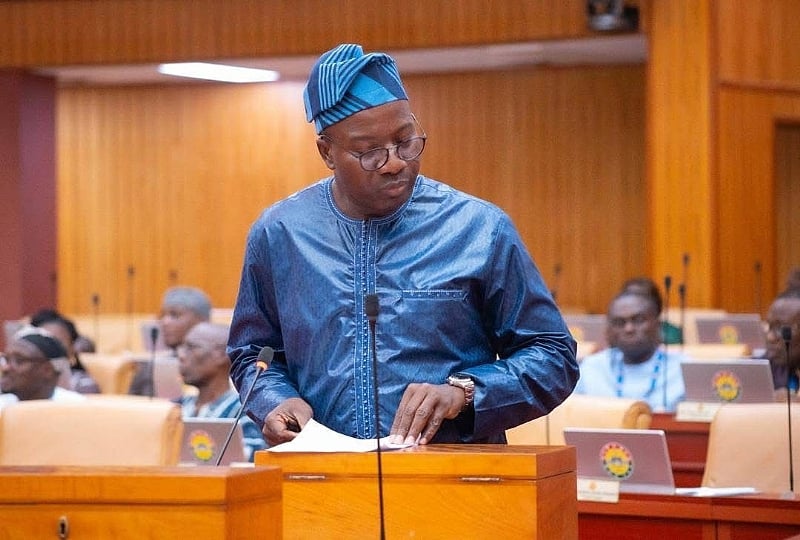The political arena in Ghana has witnessed a heated exchange between two prominent figures, Majority Leader Mahama Ayariga and Minority Leader Alexander Afenyo-Markin, over the latter’s alleged failure to honor promises made to Parliament. Mr. Ayariga has launched a scathing critique of Mr. Afenyo-Markin, accusing him of hypocrisy for consistently criticizing government officials for unfulfilled commitments while failing to uphold his own. This clash highlights a broader issue of accountability and the importance of keeping one’s word within the political landscape, particularly in the context of parliamentary proceedings where public trust and transparency are paramount.
Central to Mr. Ayariga’s criticism are two specific instances where Mr. Afenyo-Markin allegedly reneged on his public pronouncements. The first revolves around the detention of the NPP Ashanti Regional Chairman, Bernard Antwi Bosiako. Mr. Afenyo-Markin had publicly declared his intention to lead a protest at the Economic and Organised Crime Office (EOCO) premises, promising to spend the night there as a demonstration against Mr. Bosiako’s detention. However, according to Mr. Ayariga, the Minority Leader failed to follow through on this commitment, leaving the premises at 10 p.m. This unfulfilled promise, Mr. Ayariga argues, undermines Mr. Afenyo-Markin’s credibility and casts doubt on his sincerity when criticizing others for similar actions.
The second instance relates to the ongoing investigation of former Finance Minister Ken Ofori-Atta by the Office of the Special Prosecutor (OSP). Mr. Ayariga contends that Mr. Afenyo-Markin assured Parliament in February that he would personally intervene to ensure Mr. Ofori-Atta’s cooperation with the OSP investigation in May. However, June had arrived without Mr. Ofori-Atta’s appearance before the OSP. This further reinforces Mr. Ayariga’s claim that Mr. Afenyo-Markin’s words carry little weight, as his promises repeatedly remain unfulfilled. The consequence, according to Mr. Ayariga, is a diminished trust in the Minority Leader’s pronouncements and a call for his statements to be treated with skepticism within the parliamentary context.
The timing of this exchange is significant, coinciding with the OSP’s declaration of Mr. Ofori-Atta as a wanted fugitive. The Special Prosecutor, Kissi Agyebeng, publicly announced this status on June 2, following Mr. Ofori-Atta’s failure to meet a deadline for cooperation with the investigation. This development adds another layer of complexity to the situation, as it further underscores the importance of accountability and the pursuit of justice within the Ghanaian political system. Mr. Ayariga’s criticism of Mr. Afenyo-Markin can be seen within this larger context, highlighting the need for consistent application of principles of responsibility and adherence to commitments, regardless of political affiliation.
Mr. Ayariga’s public denouncement of Mr. Afenyo-Markin’s conduct raises questions about the latter’s leadership and the impact of unfulfilled promises on the political discourse. The accusations of dishonesty and the call for Mr. Afenyo-Markin’s words to be discounted suggest a significant breach of trust within the parliamentary setting. The repercussions of this public dispute could extend beyond the immediate exchange, potentially influencing future interactions and collaborations between the two leaders and their respective parties. The focus now shifts to Mr. Afenyo-Markin and his response to these serious allegations.
This incident underscores the importance of accountability and transparency in political leadership. The public expects elected officials to uphold their commitments and to be held responsible for their actions. When promises are repeatedly broken, it erodes public trust and undermines the integrity of the political process. This clash between Mr. Ayariga and Mr. Afenyo-Markin serves as a reminder of the importance of holding all leaders accountable for their words and actions, ensuring they contribute to a political environment built on honesty, integrity, and the fulfillment of commitments made to the public and within the institutions of government.


